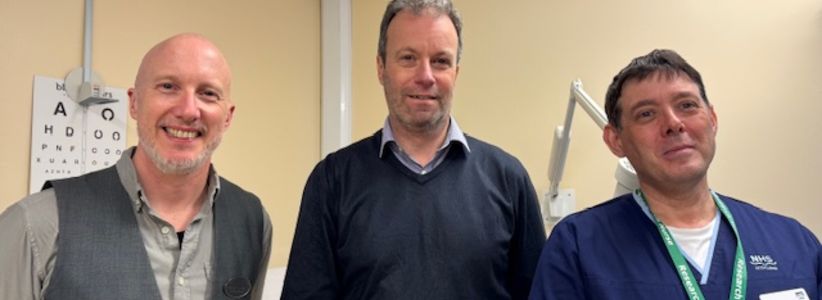Midlothian GP practice sees benefits of embracing clinical research opportunities

18th November 2024
A forward-thinking GP practice in Midlothian is actively embracing clinical research opportunities for the benefit of both its patients and staff
Penicuik Medical Practice has welcomed involvement in a Long COVID trial as part of its first steps in expanding research opportunities with positive feedback from local participants.
Part of the NHS Research Scotland (NRS) Primary Care Network, Lead Research Nurse Andrew Deans, who is based in NHS Lothian and has a remit to coordinate and facilitate vital research in primary care locations, approached the practice with the research opportunity.
GP practice staff were impressed by Andrew’s wealth of clinical research experience spanning over 20 years — including setting up and coordinating over 40 commercial and academic sponsored clinical trials within respiratory medicine — and his enthusiasm for advocating the benefits of research.
Practice Manager James Reilly and Dr Drummond Begg, who led on the trial, have been delighted by the experience, and now encourage other primary care locations to get involved in research, supporting greater equity of access for patients.
They believe that expanding this work and providing targeted support to GPs has several benefits — allowing practices to enhance their research experience, offering opportunities for patients to participate locally, whilst improving staff awareness that research can happen outside of hospitals.
James said: “It was a no brainer for a practice like us to get involved. Andrew got in touch initially to talk through the process, and it was an easy decision to make as we like participating in new things that can benefit our patients with the hope that it can help them or give them more information.
“We’re currently working through our Long COVID trial, and it’s been very positive. The structure around it was very attractive with Andrew driving it as part of a partnership proposition — a big thing given how busy we are.
“He also offered guidance on the kind of patients that would be a good fit and looked after the paperwork so that it was all painless for us. He has also been a reassuring presence, offering us a bit of hand holding when required.
“The limited level of research happening right now in primary care seems a bit absurd in that we see so many people who would be interested in participating while providing valuable insights. I would recommend other practices to help continue that culture change.”
Drummond said: “Supported by Andrew, I’ve been pleased to take the role of Principal Investigator on this trial with a key aim of making sure patient care is to the fore, being part of something that may provide answers to questions we haven’t asked yet, and crucially, making it local.
“It wasn’t a negative as such, but previously some people from Penicuik had to travel further to access research opportunities, so having this convenience — the ability to participate on their doorstep — has improved their research experience.
“Recruitment of new doctors into general practice can be challenging, but the ability to offer a combination of teaching, training, and research changes the whole dynamic. Having interests outside of everyday care significantly increases the variety of the job while reducing burnout from compassion fatigue and decision fatigue.
“Our message to other practices is to absolutely encourage you into this space — you won’t look back.”
Andrew added: “The Penicuik trial is a great case study for what research can achieve in general practices while raising the profile of opportunities which are very accessible — any practice can do it.
“I’m delighted the Long COVID study with Penicuik Medical Practice is going so well. Its excellent staff have been very receptive, and that in turn helps us extend opportunities for patients who may not have known about opportunities to take part in research.
“We are also very grateful for patients’ time and participation, without which trials like these could not happen.”

